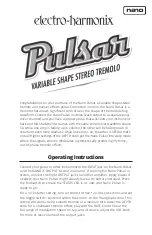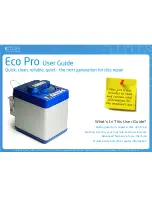
Safety Information and Precautions
/!\ DANGER
Vehicle exhaust gases contain Carbon Monoxide, which is a colorless and odorless lethal gas.
Only run engines in well-ventilated areas and avoid breathing exhaust gases.
Extended breathing of exhaust gases will cause serious injury or death.
/!\ WARNING
Exhaust gases, moving parts, hot surfaces are present during and after the vehicle’s engine is running. This
list is by no means complete. Always pay close attention to the job at hand and obey all safety procedures.
Read and understand the operator’s manual before using the STEERCLEAN Service system.
When using petroleum products always refer to the MSDS sheets and manufacturer’s instructions for
the proper procedure to handle emergency medical treatment, cleanup, handling, and storage
requirements.
Improper use of the
STEERCLEAN
Service System can cause injury.
Spilled service fluid on an engine can ignite.
Avoid exposure to flames, sparks, hot engine parts, and other ignition sources.
Always keep fully charge fire extinguisher nearby. The extinguisher should have a class B rating and
be suitable for gasoline, chemical, and electrical fires.
Cleanup any oil spills immediately.
Dispose of contaminated cleanup material according to governing environmental laws.
Never look directly into the air induction plenum or carburetor throat when the engine is operating.
Explosion or flame or exposure to flammable liquid and vapors can cause injury.
Flammable liquid (service fluid) can splash out of reservoir when filling. Steering Fluid temperatures can
reach in excess of 350°F, which can cause serious injury to the human body.
Always keep Reservoir Cap secure except when filling reservoir.
Explosion or flame can cause injury.
Power steering systems may maintain residual pressure in connection lines to and from pump even after the
engine has been turned off.
Wear safety goggles.
Wear chemical resistant gloves when connecting or disconnecting fitting and adapters.
Do not swallow or ingest any chemicals.
Use with adequate ventilation. Avoid breathing vapors.
Improper use of service fluid can cause injury.
Over exposure can have harmful effect on eyes, skin, respiratory system and possible unconsciousness and
asphyxiation.




































